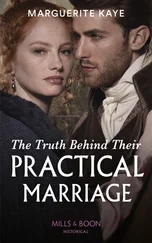The girl in the felt hat is in the muddy light of the river, alone on the deck of the ferry, leaning on the rails. The hat makes the whole scene pink. It’s the only colour. In the misty sun of the river, the sun of the hot season, the banks have faded away, the river seems to reach to the horizon. It flows quietly, without a sound, like the blood in the body. No wind but that in the water. The engine of the ferry’s the only sound, a rickety old engine with burned-out rods. From time to time, in faint bursts, the sound of voices. And the barking of dogs, coming from all directions, from beyond the mist, from all the villages. The girl has known the ferry-man since she was a child. He smiles at her and asks after her mother the headmistress, Madame la Directrice. He says he often sees her cross over at night, says she often goes to the concession in Cambodia. Her mother’s well, says the girl. All around the ferry is the river, it’s brimfull, its moving waters sweep through, never mixing with, the stagnant waters of the rice-fields. The river’s picked up all it’s met with since Tonle Sap and the Cambodian forest. It carries everything along, straw huts, forests, burned-out fires, dead birds, dead dogs, drowned tigers and buffaloes, drowned men, bait, islands of water hyacinths all stuck together. Everything flows towards the Pacific, no time for anything to sink, all is swept along by the deep and head-long storm of the inner current, suspended on the surface of the river’s strength.
I answered that what I wanted more than anything else in the world was to write, nothing else but that, nothing. Jealous. She’s jealous. No answer, just a quick glance immediately averted, a slight shrug, unforgettable. I’ll be the first to leave. There are still a few years to wait before she loses me, loses this one of her children. For the sons there’s nothing to fear. But this one, she knows, one day she’ll go, she’ll manage to escape. Top in French. The headmaster of the high school tells her, your daughter’s top in French, Madame. My mother says nothing, nothing, she’s cross because it’s not her sons who are top in French. The beast, my mother, my love, asks: what about maths? Answer: Not yet, but it will come. My mother asks: When? Answer: When she makes up her mind to it, Madame.
My mother, my love, her incredible ungainliness, with her cotton stockings darned by Dô, in the tropics she still thinks you have to wear stockings to be a lady, a headmistress, her dreadful shapeless dresses, mended by Dô, she’s still straight out of her Picardy farm full of female cousins, thinks you ought to wear everything till it’s worn out, that you have to be deserving, her shoes, her shoes are down-at-heel, she walks awkwardly, painfully, her hair’s drawn back tight into a bun like a Chinese woman’s, we’re ashamed of her, I’m ashamed of her in the street outside the school, when she drives up to the school in her old Citroën B12 everyone looks, but she, she doesn’t notice anything, ever, she ought to be locked up, beaten, killed. She looks at me and says: Perhaps you’ll escape. Day and night, this obsession. It’s not that you have to achieve anything, it’s that you have to get away from where you are.
When my mother emerges, comes out of her despair, she sees the man’s hat and the gold lamé shoes. She asks what’s it all about. I say nothing. She looks at me, is pleased, smiles. Not bad, she says, they quite suit you, make a change. She doesn’t ask if it’s she who bought them, she knows she did. She knows she’s capable of it, that sometimes, those times I’ve mentioned, you can get anything you like out of her, she can’t refuse us anything. I say: Don’t worry, they weren’t expensive. She asks where. I say it was in the rue Catinat, marked-down markdowns. She looks at me with some fellow-feeling. She must think it’s a good sign, this show of imagination, the way the girl’s thought of dressing like this. She not only accepts this buffoonery, this unseemliness, she, sober as a widow, dressed in dark colours like an unfrocked nun, she not only accepts it, she likes it.
The link with poverty’s there in the man’s hat too, for money’s got to be brought in, got to be brought in somehow. All around her are wildernesses, wastes. The sons are wildernesses, they’ll never do anything. The salt land’s a wilderness too, the money’s lost for good, it’s all over. The only thing left is this girl, she’s growing up, perhaps one day she’ll find out how to bring in some money. That’s why, though she doesn’t know it, that’s why the mother lets the girl go out dressed like a child prostitute. And that’s why the child already knows how to divert the interest people take in her to the interest she takes in money. That makes her mother smile.
Her mother won’t stop her when she tries to make money. The child will say: I asked him for five hundred piastres so that we can go back to France. Her mother will say: Good, that’s what we’ll need to set ourselves up in Paris, we’ll be able to manage, she’ll say, with five hundred piastres. The child knows what she’s doing is what the mother would have chosen for her to do, if she’d dared, if she’d had the strength, if the pain of her thoughts hadn’t been there every day, wearing her out.
In the books I’ve written about my childhood I can’t remember, suddenly, what I left out, what I said. I think I wrote about our love for our mother, but I don’t know if I wrote about how we hated her too, or about our love for one another, and our terrible hatred too, in that common family history of ruin and death which was ours whatever happened, in love or in hate, and which I still can’t understand however hard I try, which is still beyond my reach, hidden in the very depths of my flesh, blind as a new-born child. It’s the area on whose brink silence begins. What happens there is silence, the slow travail of my whole life. I’m still there, watching those possessed children, as far away from the mystery now as I was then. I’ve never written, though I thought I wrote, never loved, though I thought I loved, never done anything but wait outside the closed door.
When I’m on the Mekong ferry, the day of the black limousine, my mother hasn’t yet given up the concession with the dyke. Every so often, still, we make the journey, at night, as before, still all three of us, to spend a few days there. We stay on the verandah of the bungalow, facing the mountains of Siam. Then we go home again. There’s nothing she can do there, but she goes. My younger brother and I are beside her on the verandah overlooking the forest. We’re too old now, we don’t go bathing in the river any more, we don’t go hunting black panther in the marshes in the estuary any more, or into the forest, or into the villages in the pepper plantations. Everything has grown up all around us. There are no more children, either on the buffaloes or anywhere else. We too have become strange, and the same sluggishness that has overtaken my mother has overtaken us too. We’ve learned nothing, watching the forest, waiting, weeping. The lower part of the land is lost for good and all, the servants work the patches higher up, we let them keep the paddy for themselves, they stay on without wages, making use of the stout straw huts my mother had built. They love us as if we were members of their own family, they act as if they were looking after the bungalow for us, and they do look after it. All the cheap crockery’s still there. The roof, rotted by the endless rain, goes on disintegrating. But the furniture’s kept polished. And the shape of the bungalow stands out clear as a diagram, visible from the road. The doors are opened every day to let the wind through and dry out the wood. And shut every night against stray dogs and smugglers from the mountains.
Читать дальше












